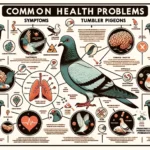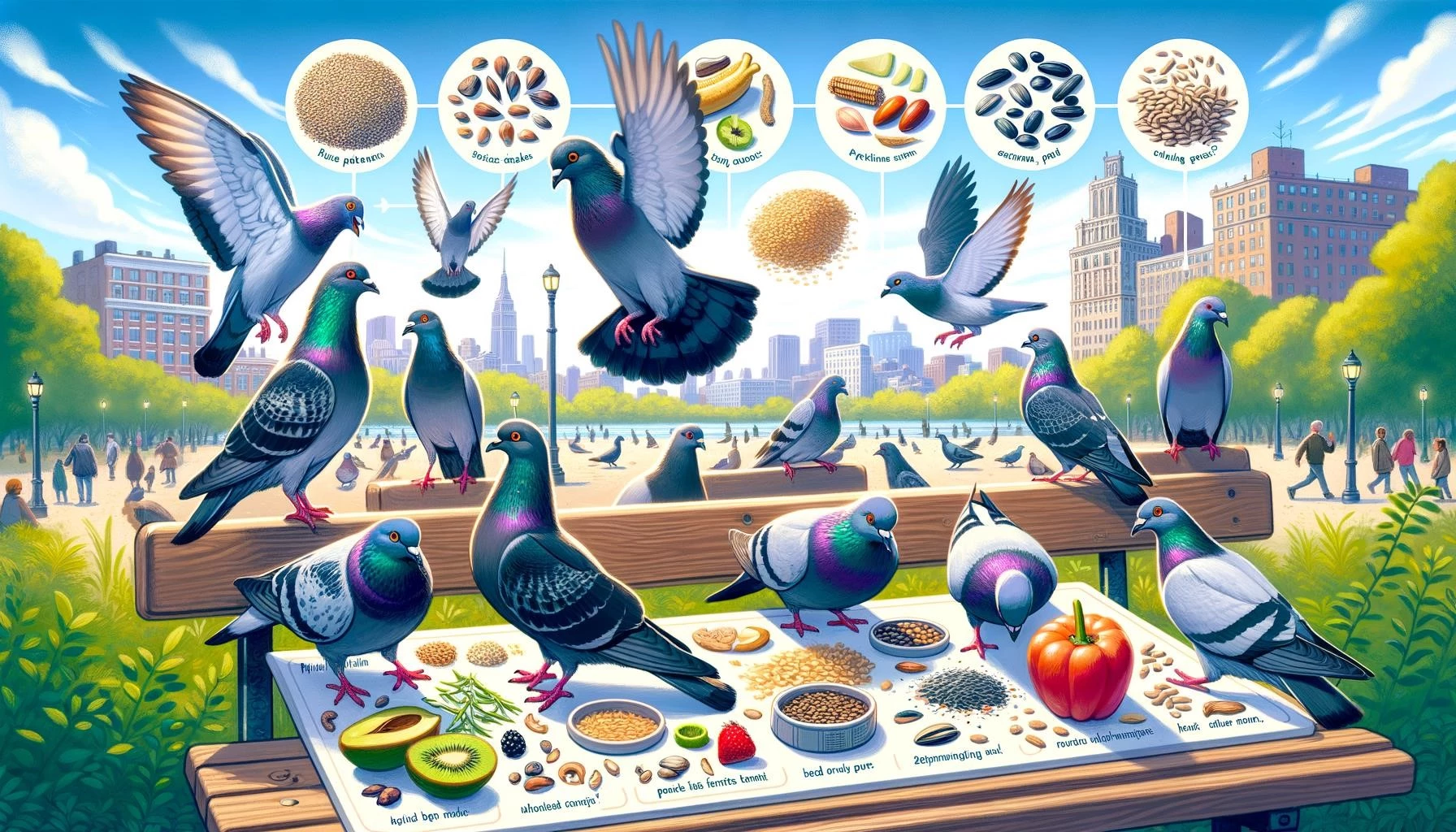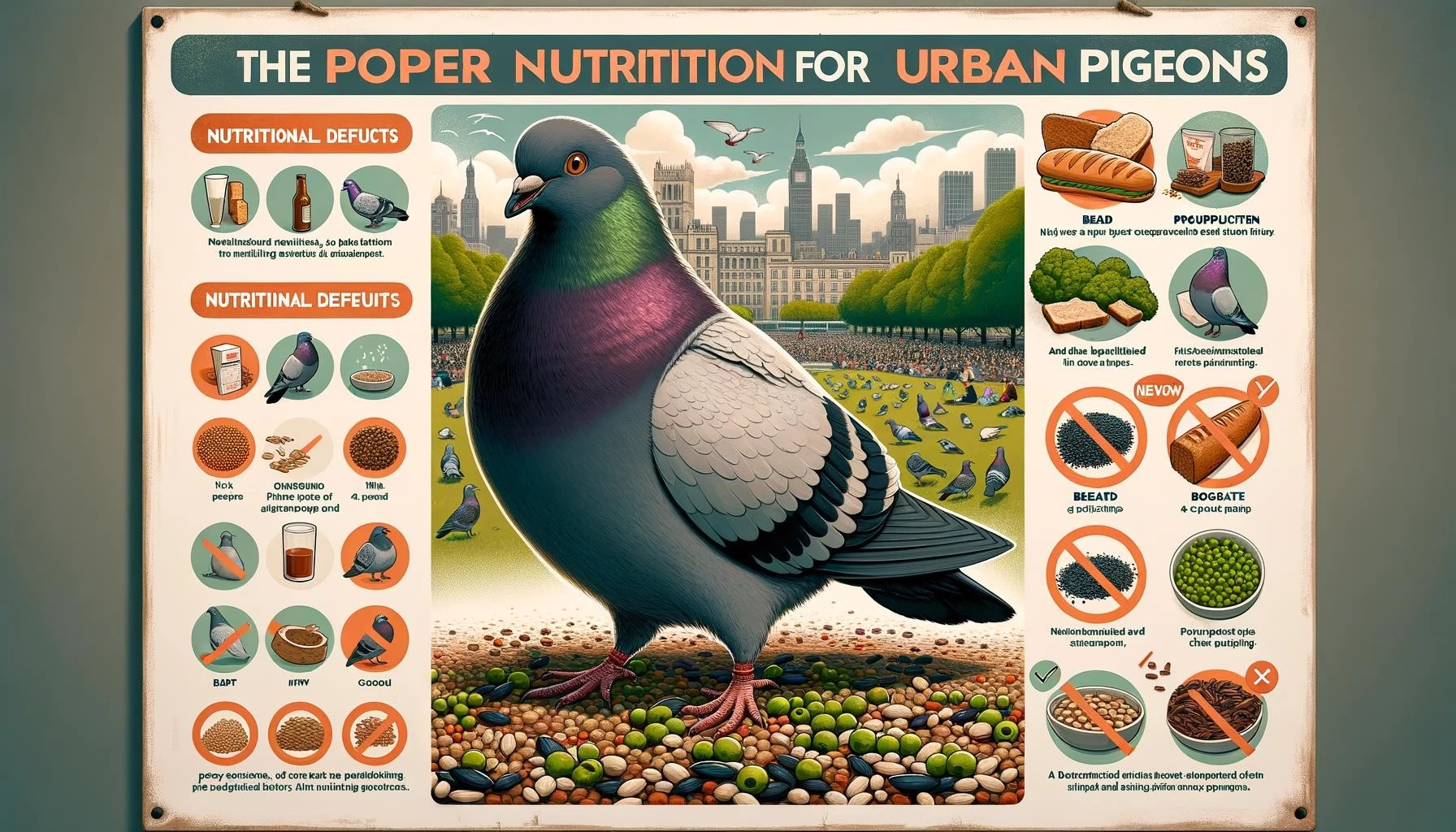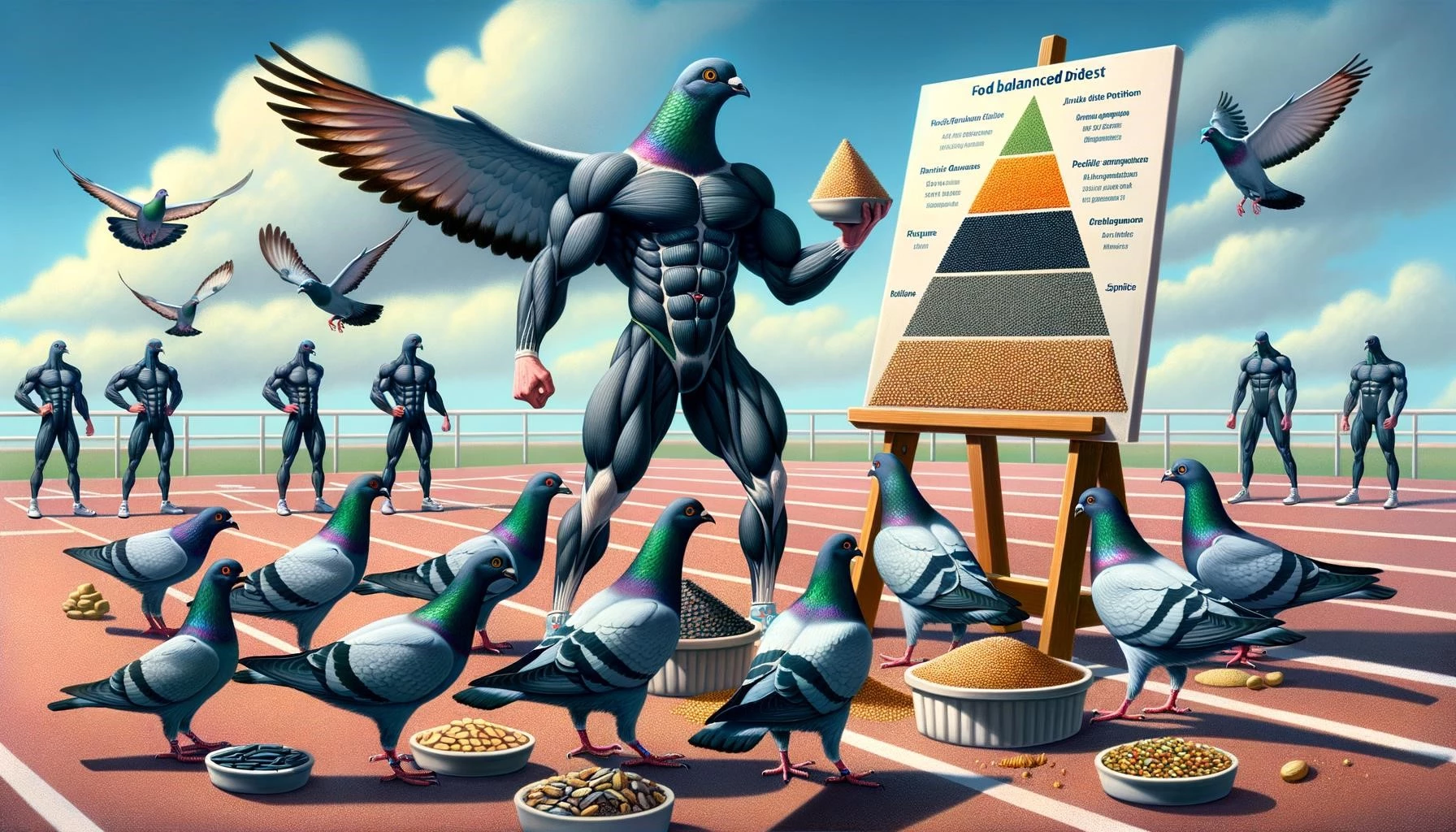Understanding the unique dietary needs of pigeons is crucial for their health and vitality. From a diverse diet of grains, seeds, and fruits to the importance of a consistent feeding schedule, proper nutrition plays a key role in their growth, energy levels, and disease prevention. This discussion not only explores the essentials of pigeon nutrition but also delves into the role of treats and supplements, and the vital importance of fresh water, in keeping these birds healthy and thriving.
Key Takeaways
- Pigeons have unique nutritional needs and require a balanced diet that includes fruits, grains, seeds, and protein sources.
- A proper feeding schedule ensures that pigeons receive optimal nutrition on a regular basis, preventing obesity and malnutrition.
- Feeding pigeons according to a schedule strengthens the bond between owners and birds, establishes trust, and makes them easier to train.
- A well-structured feeding routine helps prevent the spread of diseases among pigeons and allows for early detection of potential health issues.
- Treats and supplements should complement a balanced diet and should not replace the basic nutritional needs that pigeons receive from their main meals.
- Clean and fresh water is essential for the health and well-being of pigeons.
Dietary Needs of Pigeons
Pigeons have specific dietary requirements to ensure their health and well-being. An ideal pigeon diet consists of a variety of grains, seeds, legumes, fruits, and protein sources. These birds are granivores, primarily feeding on seeds from cereals, legumes, and oilseeds. They also enjoy fresh fruits, berries, and vegetables.
A well-balanced diet is crucial for pigeons as it provides them with essential nutrients for bodily functions, growth, and reproduction. It is important to provide a mix of grains, seeds, and legumes to prevent any nutrient deficiencies. Additionally, supplementing their diet with minerals, plants, and some animal feeds ensures their nutritional needs are met.
It’s worth noting that pigeons are susceptible to calcium deficiency, so incorporating calcium-rich foods in their diet is essential. Vitamin deficiencies can cause health issues in pigeons, with signs including messy and dull feathers, sneezing, runny noses, and visual impairment in severe cases.
The Importance of a Feeding Schedule
Establishing a feeding schedule for pigeons is crucial for their overall health and well-being. Here are some reasons why a feeding schedule is important:
1. Optimal Nutrition: A feeding schedule ensures that pigeons receive a regular and balanced diet, providing them with the necessary nutrients to support their growth and vitality.
2. Energy Levels: Following a feeding schedule ensures that pigeons have a consistent source of energy throughout the day. This is particularly important during breeding and racing seasons when pigeons require extra fuel.
3. Prevention of Obesity and Malnutrition: A well-structured feeding schedule helps regulate pigeons’ food intake, preventing overeating and underfeeding. This prevents issues like obesity and malnutrition and promotes healthy growth and immune system function.
4. Bond with Pigeons: Feeding pigeons consistently at the same time each day establishes trust and familiarity, strengthening the bond between owners and birds. Pigeons thrive on routine and benefit from the predictability of a feeding schedule.
5. Health Monitoring: A feeding schedule allows owners to monitor their pigeons’ appetite and behavior, enabling early detection of any potential health issues. Regular observation and interaction during feeding times play an important role in disease prevention and maintaining overall health.
Treats and Supplements for Pigeons
While a well-balanced diet should meet most of the pigeons’ nutritional needs, treats and supplements can provide additional nutrition and variety. Here are some key points to consider:
1. Complement to a Balanced Diet: Treats and supplements should not replace the essential nutrients obtained from a balanced diet. They should be given in moderation and as a supplement to the main meals.
2. Observation and Monitoring: Regularly observe your pigeons’ behavior and health to determine if specific treats or supplements are needed. A balanced diet should already provide most of the necessary nutrients, but certain situations may require additional supplementation.
3. Calcium and Vitamin Supplements: Pigeons require sufficient calcium for bone health and egg production. Vitamin A and other vitamins can also be supplemented to prevent deficiencies. It is recommended to consult with avian experts or veterinarians for specific supplement recommendations.
Remember, it is important to provide clean and fresh water to pigeons at all times. Water is essential for their hydration and overall health.
In conclusion, understanding the nutritional needs of pigeons and establishing a proper feeding schedule are fundamental for their well-being. By providing a balanced diet, monitoring their health, and incorporating treats and supplements when necessary, you can ensure that your pigeons are healthy, happy, and thriving.









